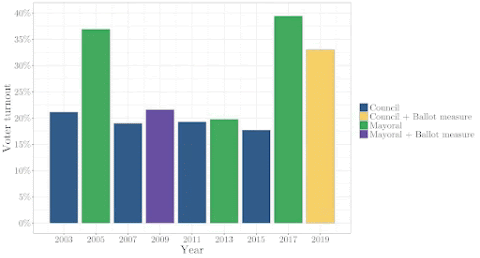ISAIAH Creates Social Movement
ISAIAH Took a City-Wide Ballot Initiative & Created a Social Movement with Empower
In 2017, with the rise of race-fueled attacks on minorities in the wake of the Trump presidential election, the Dar-al-Farooq mosque in Bloomington, Minnesota was bombed by a white supremacist group named the White Rabbits. Miraculously, nobody was injured in the attack, but the Somali Muslim community was at a crossroads. Members of the mosque’s leadership knew that the urgency of the moment required a shift in power and policymaking, starting with their local municipality. This is when they turned to Relational Organizing to make a difference.
For members of the mosque’s leadership like Imam Mohamed Omar and Abdulahi Farah, they understood the desired destination, but not yet the pathway forward. “We wanted to liberate ourselves from the Islamophobia that was happening,” but “we didn’t have a power organization in our community,” Abdulahi explained. They reached out to their local networks and began a working relationship with the group ISAIAH.
Originally a predominantly white, Christian coalition, ISAIAH recognized both the severity of the threat of white supremacy against marginalized communities in Minnesota, as well as the opportunity to expand and mobilize their base to create change. With the new addition of Muslim leadership from members of the Dar-al-Farooq mosque, they initiated a relational organizing and leadership development program, as a first test in their new strategy.
For the 2019 cycle their stated aims were to boost electoral participation for which, historically, less than a quarter of registered voters turn out and to use the campaign as an organizational testing ground for the electoral organizing programs planned for the higher salience (and higher stakes) 2020 cycle.
Around the same time, a municipal issue was developing that few realized would have such deep ramifications.
“It’s not about the trash, it’s about collective power.”
The day after Melvin Carter was elected as St. Paul’s first Black mayor, the City Council voted to end the city’s longstanding practice of private trash collection in favor of a publicly managed system. This was in response to the multiple issues presented under a private system where multiple garbage trucks from different companies would congest a neighborhood, or neighbors forced to barter with each other in order to share garbage bins.
The conversation around the issue was hijacked by “trash activists” who decried the decision, calling it “big government” and a “gross overreach.” Social media and email lists were cultivated in order to spark outrage on a decision that was intended for the collective good, leading to a ballot referendum on trash collection. If successful, the city of St. Paul would be 27 million dollars in the hole for the trash contract, and with nothing to show for it.
ISAIAH staff realized that a “No” on the referendum would instantly gut the future of progressive work in St. Paul, cementing the notion that collective action on local issues are not feasible. A seemingly innocuous referendum became a proxy battle on the direction of St. Paul for years to come.
Using Empower to Mobilize Activism and Energy
While the history of Relational Organizing runs deep, this strategy had not been thoroughly researched until recent years. This is what groups like Empower Project set out to provide with a free and accessible app called Empower.
In order to crowd out the noise coming from trash activists, ISAIAH staff invested in Relational Organizing and using trusted messengers to communicate with neighbors, friends and family members about this issue. Leaning into the approach of “it’s not about dumpsters, it’s about collective action,” staffers like Vivian trained volunteers on the features of the Empower App such as relational list building, connecting contacts to their voter file, and how to to track their 1-on-1 conversations. Some attendees of the training even brought their church directories in order to fill out a list of 30 friends they would contact!
These one-on-one conversations began to scale exponentially. Groups of 7 volunteers turned into 90, who then reached out to 30 of their own friends, and so on. Using the data from Empower, we can see the physical expansion of support for ISAIAH’s movement, as well as a direct correlation with overall turnout during an otherwise traditionally low-turnout cycle.
The most historic turnout in St. Paul during local elections since 2003.
The 2019 cycle had the highest turnout of its kind, comparable to larger cycles that featured mayoral races.
The Empower app was an easy and accessible way for volunteers of all levels of experience to track their conversations, along with real-time coaching by trainers from Empower project. This allowed ISAIAH to understand the overall scale of their reach and make key strategic adjustments as needed throughout the duration of the campaign.
Their multi-layered approach to the campaign worked: a majority of St. Paul residents voted “Yes” in favor of keeping the city-organized trash system, with the highest turnout for a non-mayoral election in recent memory. What could have been a nearly-instant blow to the legacy of a black, progressive mayor was avoided, allowing for grassroots groups like ISAIAH to refocus on other local issues. The data provided to ISAIAH by working through Empower allowed them to expand their base of support and develop an even stronger ground game for future campaigns and initiatives.

